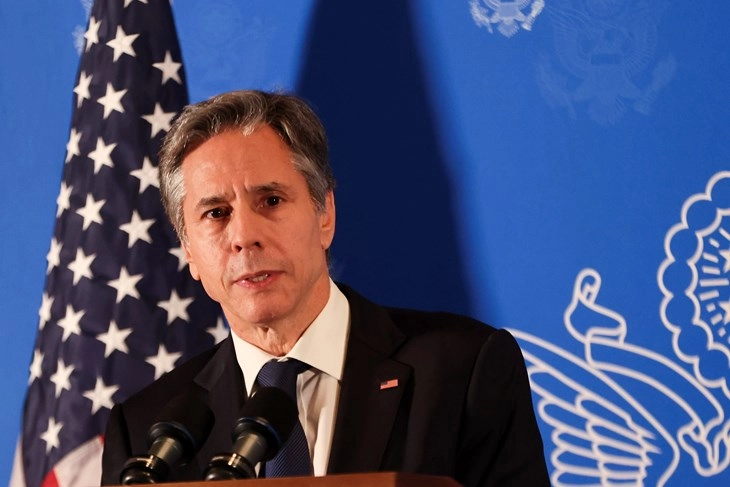Blinken: Afghanistan can be a pariah state if Taliban continue abuse

New Delhi, 28 July 2021 (dpa/MIA) – Afghanistan can become a pariah state if the Taliban continues to abuse the rights of its own people and takes control by force, US Secretary of State Antony Blinken said on Wednesday.
The Taliban’s advance towards the district centres of Afghanistan over the past week and reports of atrocities committed by them was deeply troubling, Blinken said during a press briefing in New Delhi.
"Ultimately an Afghanistan that does not respect the rights of its people, an Afghanistan that commits atrocities against its own people will become a pariah state," Blinken said after talks with his Indian counterpart Subrahmanyam Jaishankar.
Blinken said the Taliban wanted international recognition and support for Afghanistan. "It presumably wants its leaders to be able to travel freely in the world, sanctions lifted ... well, taking over the country by force and abusing the rights of its people is not the path to achieve those objectives."
The only path was the negotiating table to resolve the conflict peacefully and which would lead to the emergence of a government which was inclusive and representative of all its people, Blinken said.
Blinken said the US despite withdrawing its troops remained very much engaged in Afghanistan through diplomacy to resolve the conflict and assistance in various forms including to Afghan security forces.
Jaishankar said consequences to the US withdrawal of its forces were inevitable and discussions had to centre on how to handle the situation and bring about a political rather than military solution.
The discussions between Blinken and Jaishankar covered various areas of cooperation including in the Indo-Pacific bilaterally and through the Quad regional alliance that also includes Japan and Australia.
In reply to a question on China's criticism of the Quad as an attempt to contain its influence, Blinken said the grouping was not a military alliance.
It was four like-minded countries collaborating and pooling resources to have an impact on issues that concerned them including the pandemic, economic recovery, climate change and maritime security, Blinken said.
Blinken said the US would provide 25 million dollars through USAID to support India's vaccination programme.
Human rights issues also came up during talks. Indian Prime Minister Narendra Modi's Hindu nationalist Bharatiya Janata Party government has been criticized for trying to silence critics and for policies that are seen as discriminatory towards Muslims.
"India's democracy is powered by its free-thinking citizens," Blinken said. Every democracy faced challenges which could be ugly but had to be dealt with openly, he added.
Blinken left for Kuwait after a meeting with Modi.







